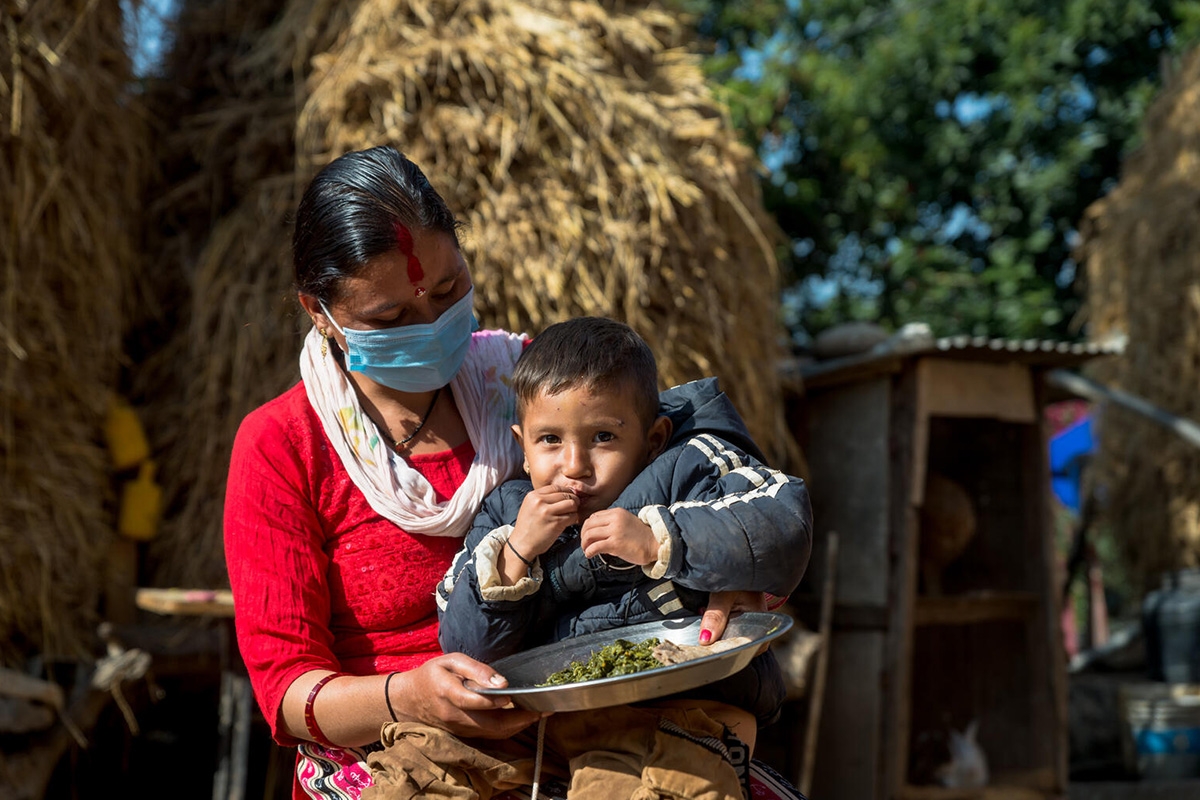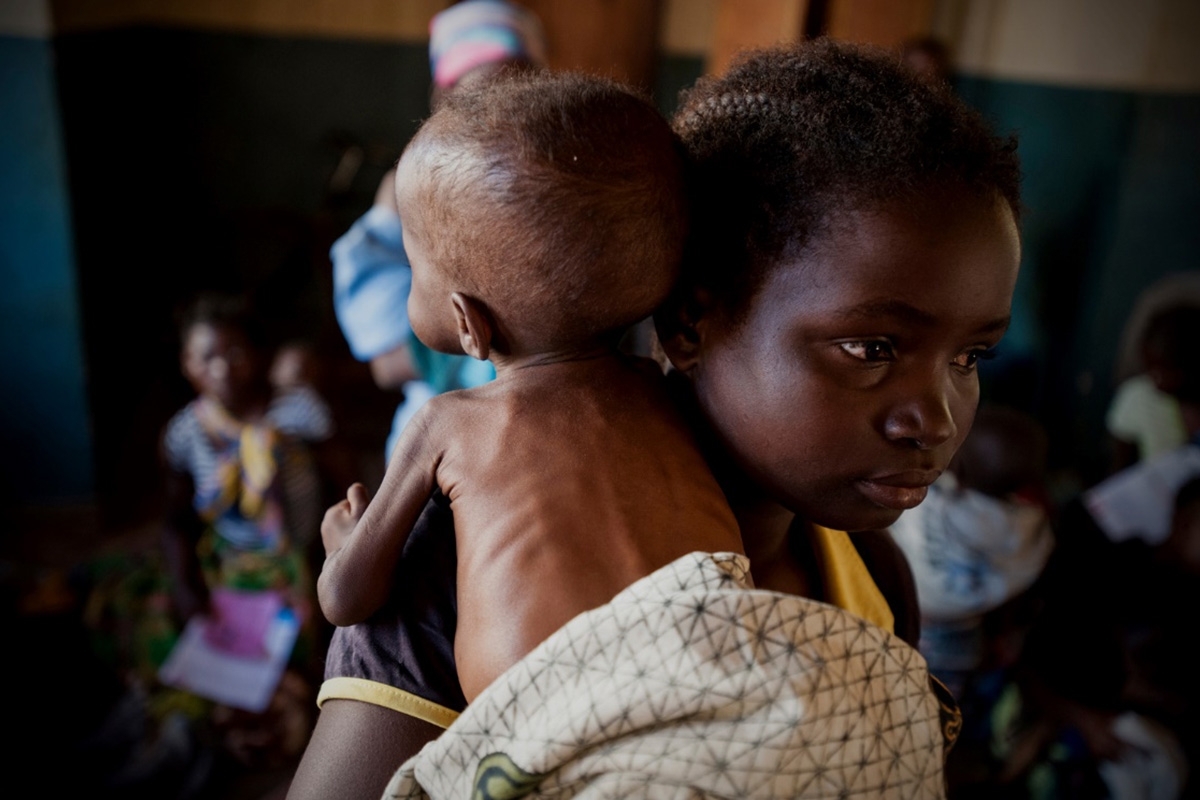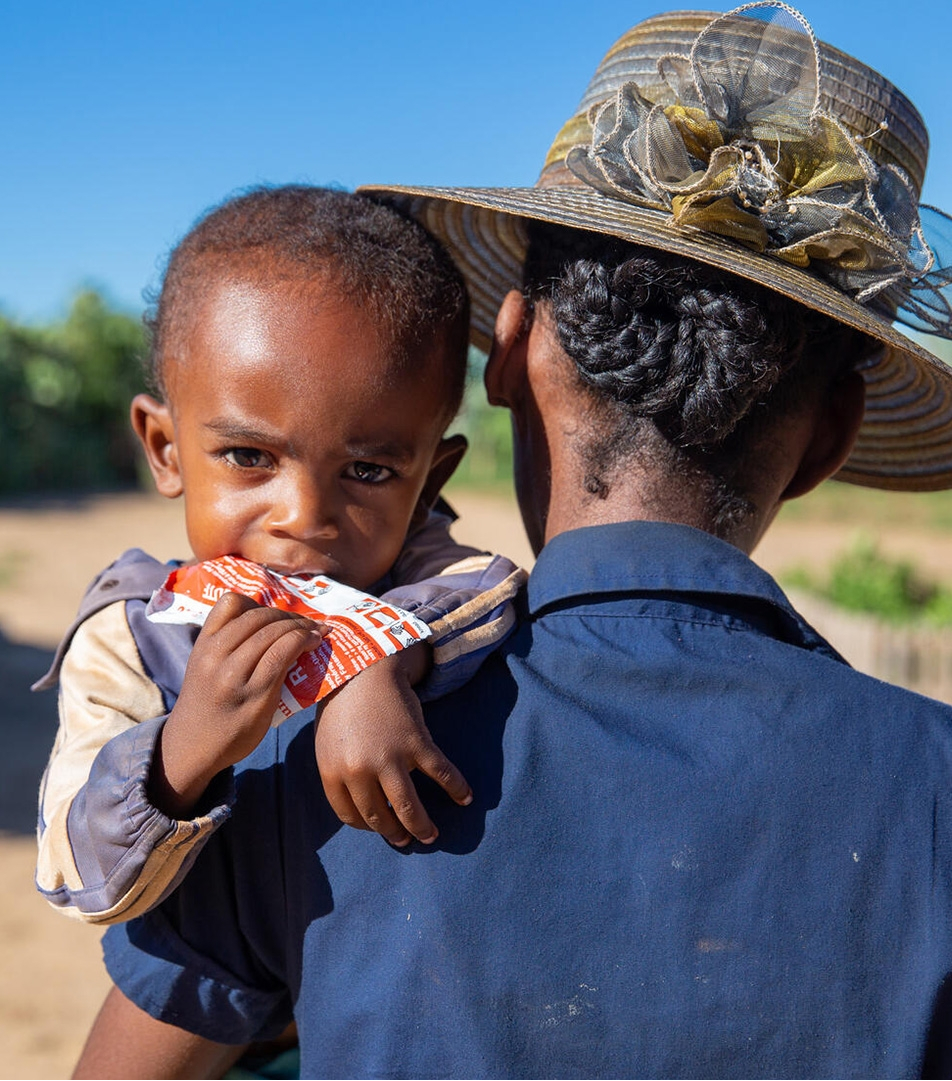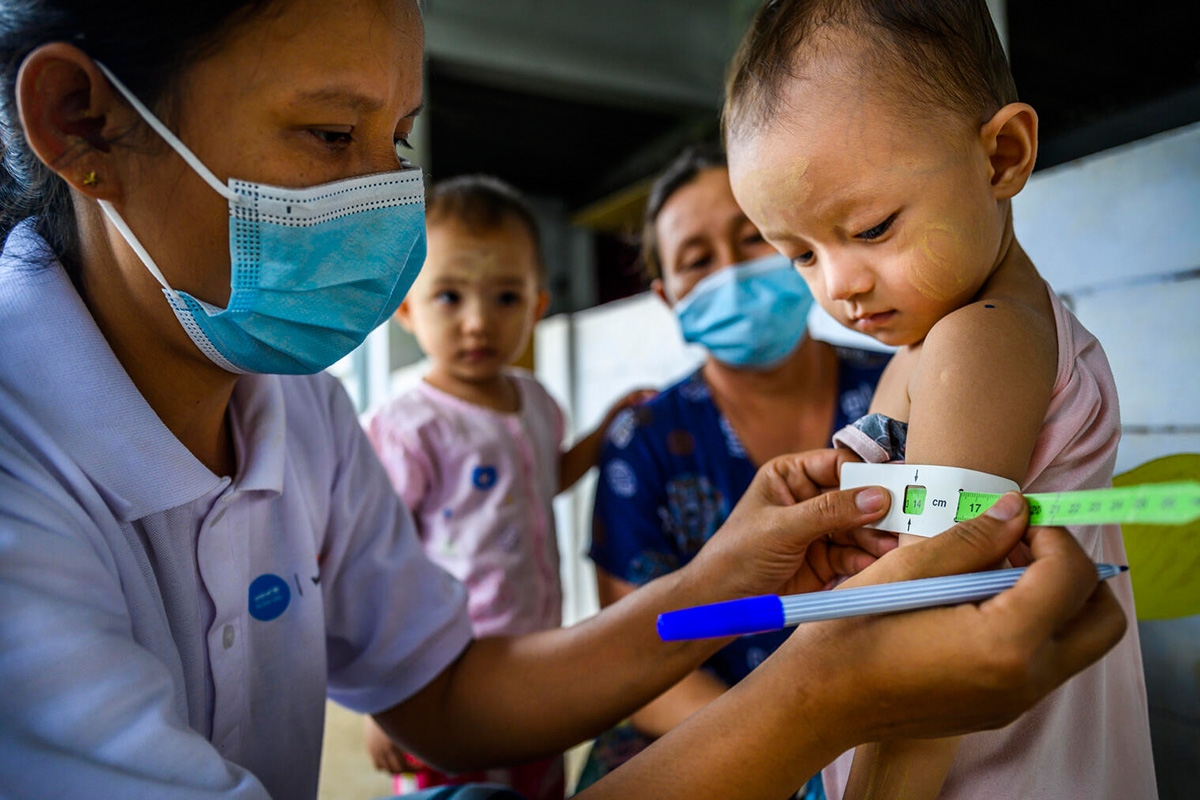
Good nutrition is the bedrock of child survival and development. Well-nourished children are better able to grow, learn, play and participate in their communities. They are also more resilient in the face of crisis.
Yet, today, many children are not getting the nutrition they need to survive and thrive. As many families across the world grapple with poverty, climate change and COVID-19, access to nutritious food has become increasingly scarce. This is especially true for the poorest and most vulnerable children.
At least one in three children under 5 is affected by malnutrition in its most visible forms: stunting, wasting and overweight.
Children affected by stunting – some 144 million under the age of 5 – are too short for their age, and their brains may never develop to their full cognitive potential, hindering their ability to learn as children, earn as adults, and contribute fully to their societies.

Wasting affects 47 million children globally. Children with wasting are desperately thin, have weakened immune systems, and face an increased risk of death: They require urgent treatment and care to survive.
Overweight affects nearly 38 million children under 5 worldwide. As global food systems shift and the consumption of processed foods high in fat, sugar and salt increases, childhood overweight is on the rise in every region of the world, particularly in middle-income countries.
Less visible forms of malnutrition, such as hidden hunger, can occur when children become deficient in essential vitamins and other micronutrients. These micronutrient deficiencies affect more than 340 million children under 5 globally, delaying their growth, weakening their immune systems and impairing their brain development.
Today, many countries are facing a double or triple burden of malnutrition – with concurrent problems of stunting, wasting, micronutrient deficiencies, and overweight.
Youtube: https://www.youtube.com/watch?v=NPQUVaiEajA
UNICEF’s Response
Across regions, UNICEF nutrition programmes share a universal premise: Prevention comes first, in all contexts. Where prevention fails, treatment is a must.
UNICEF works to prevent all forms of malnutrition by improving children’s and women’s access to nutritious, safe, affordable and sustainable diets. We support quality nutrition, health, water and sanitation, and social protection services that keep children well nourished. We also promote optimal feeding, hygiene and care practices for children and women.
Where prevention falls short, UNICEF prioritizes the early detection, treatment and care of malnourished children to help them survive, recover, and go on to live healthy and productive lives.
Through nutrition programmes in 130 countries, we seek to reach children, adolescents and women everywhere – at key moments in life.


Key planned results for 2021
- 250 million children are reached with services to prevent stunting and other forms of malnutrition
- 50 million adolescents are reached with services to prevent anaemia and other forms of malnutrition
- 6 million children are reached with services for the early detection and treatment of wasting









